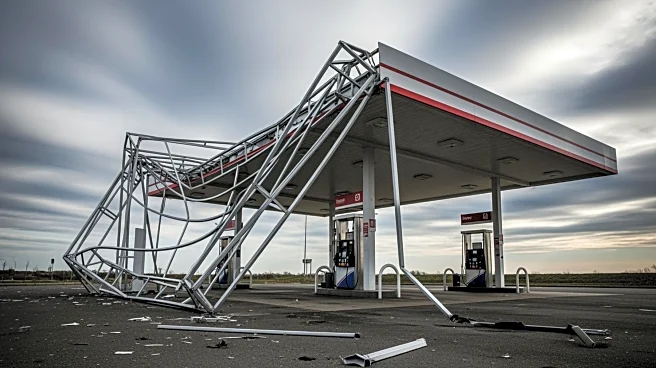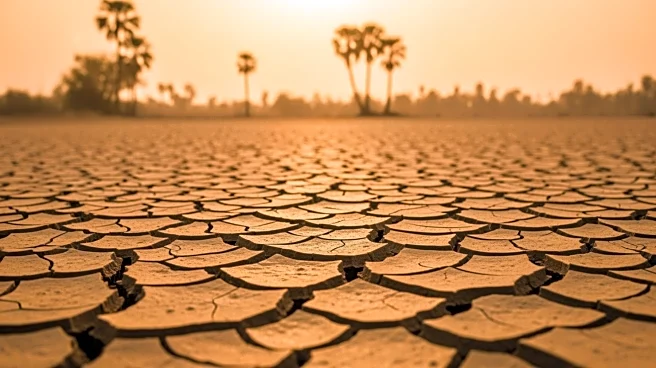What is the story about?
What's Happening?
Madagascar's President Andry Rajoelina has been airlifted out of the country by France following escalating unrest and military defections. The evacuation was reportedly carried out on a French military aircraft after mass demonstrations demanding Rajoelina's resignation. The protests, led by youth and supported by key army units, have plunged the nation into chaos. CAPSAT, an elite military unit that previously helped Rajoelina seize power in a 2009 coup, joined the protests, further undermining his authority. Rajoelina confirmed his departure in a social media address, citing threats to his life but did not disclose his location.
Why It's Important?
The situation in Madagascar highlights the growing influence of youth-led movements in political upheavals across Africa. The military defections and subsequent evacuation of President Rajoelina underscore the fragility of his regime and the potential for significant political change. This development could impact Madagascar's political landscape, affecting governance and stability. The unrest also reflects broader regional trends of dissatisfaction with leadership, economic hardship, and demands for reform, which could influence other nations facing similar challenges.
What's Next?
The future of Madagascar's political situation remains uncertain as calls for Rajoelina's resignation continue. The involvement of military units in protests suggests potential shifts in power dynamics, possibly leading to new leadership or government restructuring. International stakeholders, including France, may play a role in mediating the crisis, while domestic opposition groups could gain momentum in pushing for change. The situation warrants close monitoring as it could have implications for regional stability and international relations.
Beyond the Headlines
The crisis in Madagascar raises ethical and legal questions about the role of military forces in political protests and the legitimacy of leadership under duress. The youth-led nature of the protests reflects a cultural shift towards more active civic engagement and demands for accountability. Long-term, this could lead to changes in governance models and increased pressure on leaders to address socio-economic issues.















